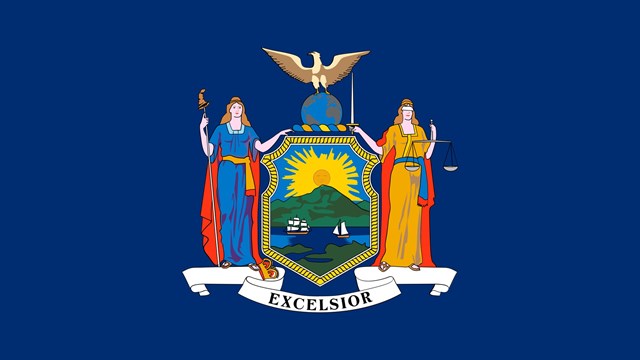Cooperative housing corporations are not exempt from income taxation. Like any other taxpayer, a housing
cooperative must pay tax on its taxable income, i.e., its gross income less allowable deductions. Not all amounts that would seem to qualify as deductions are necessarily allowable. There are various tax rules that limit the use of deductions, and two such rules are aimed particularly at organizations that both (a) have customers who for the most part are members of the organization and (b) receive income from sources other than members.
The basic concern of the IRS is that, because such an organization itself decides how much to charge its members, it could arrange matters so that the sum of all its income from members (its inside income) plus all its other income (its outside income) would be less than the aggregate of all its deductions, so that it would end up with no taxable income and therefore would have to pay no income tax. The net effect would be that the organization's outside income would be going to benefit its members (by allowing lower charges to them) without anyone ever having paid income tax on it.
Both of the aforementioned deduction-limiting rules work in basically the same wayeach provides that the organization's deductions attributable to its inside income can be used only to offset that kind of income. It follows that, even if such an organization had potential deductions that added up to more than all its gross income, one or both of those rules might nevertheless require it to pay some income tax.
Two Rules with Varied Results
Although the two rules have the same general purpose and approach, the results under the two of them would not necessarily be the same. That is because the two rules use different tests for determining whether a particular kind of income is to be treated as inside income or outside income. Under the stricter of the two rules (which is often called the M-'277 rule because it is embodied in that section of the Internal Revenue Code), income is inside income only if it was paid to the organization directly by a member. Under the more liberal rule (which is often called the Sub T rule because it applies to agricultural cooperatives and other corporations covered by Subchapter T of the Internal Revenue Code), income is inside income if it came from an activity that the organization was conducting as part of its central function.
The two rules also differ in their descriptions of the organizations to which they apply. The M-'277 rule applies generally to any membership organization, while the Sub T rule applies generally to any corporation operating on a cooperative basis. It can thus be seen that, leaving aside certain technical objections, either rule or both rules could conceivably apply to a housing cooperative.
In some situations, however, the results would be the same under either rule. For instance, it is clear that income is outside income under either rule if the activity that produced it had no relationship to the organization's principal activity other than to provide funds. An example might be a housing cooperative's collecting money not needed for any other purpose and using it to buy listed stocks that the board believed would go up in value. There are also examples of income that would be inside income under either rule for a housing coope ffb rativesuch as income produced by its directly operating washing machines available only to proprietary lessees.
It is in the in-between cases that the results might differ, depending on which rule is applied. Consider, for example, interest earned on funds that a housing cooperative must keep on hand in order to function. Under the M-'277 rule, such interest would be outside income simply because it was paid by the bank rather than by a member. Under the Sub T rule, such interest would be inside income because the cooperative could not conduct its principal activity without having such funds.
How Do Housing
Cooperatives Fit In?
For many years, housing cooperatives took the position that, for various reasons, they were not subject to either rule. At the same time, the IRS was taking the position that the M-'277 rule applied. One Mitchell-Lama cooperative (Trump Village Section 3, Inc.) finally took the IRS to court, contending that, principally because of certain limitations on its shareholders (including that they could not sell their stock at a profit, could not borrow against their stock, could not have more than one vote no matter how many shares they owned and could not vote by proxy), it was subject to the Sub T rule. And, because it was not possible for both rules to apply to the same cooperative, it contended that the co-op was not subject to the M-'277 rule.
The Tax Court agreed with the cooperative, after which the IRS announced that it would go along for cooperatives with the same characteristics. It also announced, however, that it would continue to apply the M-'277 rule to all other housing cooperatives (so that some housing cooperatives would be subject to only the Sub T rule and other housing cooperatives would be subject to only the M-'277 rule).
Last September, Judge John Colvin of the U.S. Tax Court ruled in Thwaites Terrace House Owners Corp. v. the Commissioner of Internal Revenue that all housing cooperatives are subject to the Sub T rule and therefore not to the M-'277 rule. As of the time of this writing, the IRS has not yet announced whether or not it will attempt to have that ruling overturned. Nor are housing cooperatives precluded from continuing to argue that they are subject to neither rule. Accordingly, even though things may change, for now at least it appears that housing cooperatives are governed by the Sub T rule.
The Courts Will Decide
It is important to keep in mind that the Sub T rulewhile obviously far more favorable to cooperatives than the M-'277 ruleis by no means unlimited. A housing cooperative must still be able to show that the income in question was generated by an activity that was closely intertwined with its providing housing for its members, other than simply by providing funds. In fact, although the Thwaites decision may benefit many co-ops, the Bronx co-op involved actually lost the case and was forced to pay taxes on interest income because it did not prove sufficiently that the invested funds were integral to the organization's operation.
IRS auditors have already indicated that they will generally assert that commercial rents, for instance, are outside income even under the Sub T rule. Unless there is some more fundamental change, it is likely that the courts will ultimately be called upon to decide just where the border lies.
Mr. Miller is an attorney in Flushing, New York. The Thwaites opinion was based in large part on a friend-of-the-court brief that he submitted on behalf of the National Association of Housing Cooperatives and the Federation of New York Housing Cooperatives.







Leave a Comment